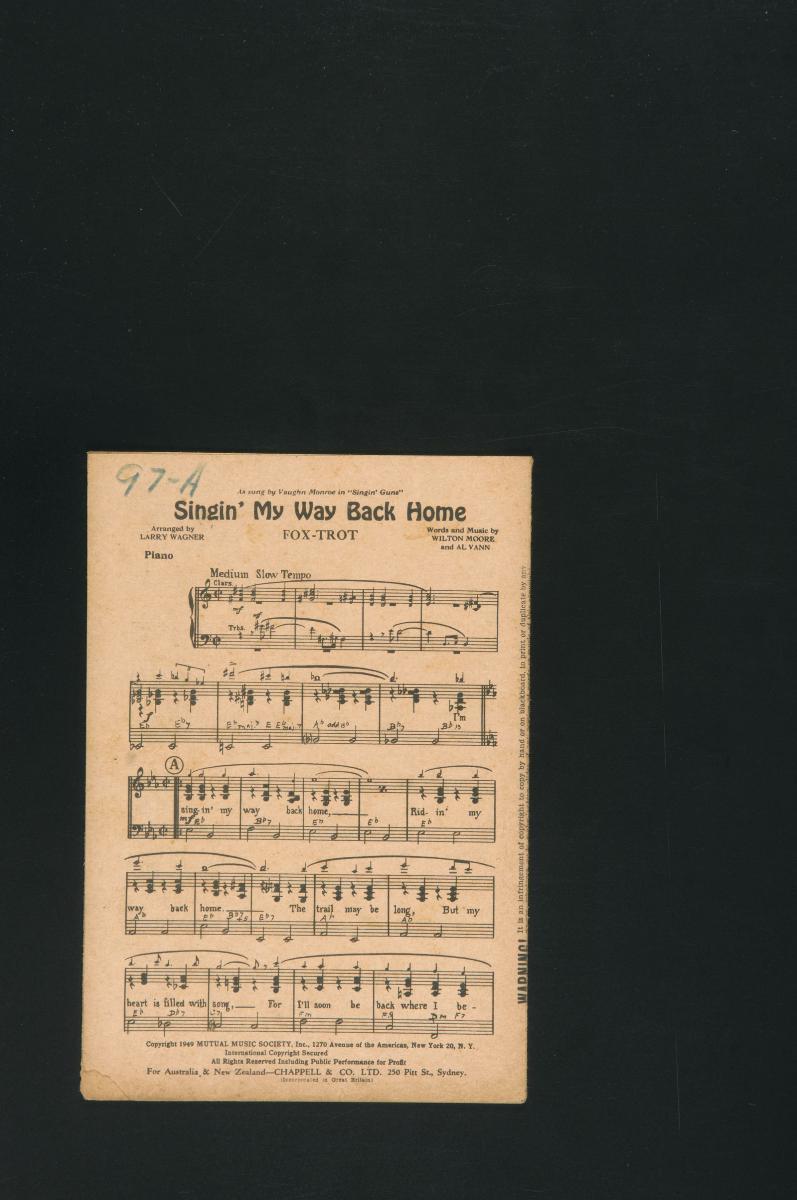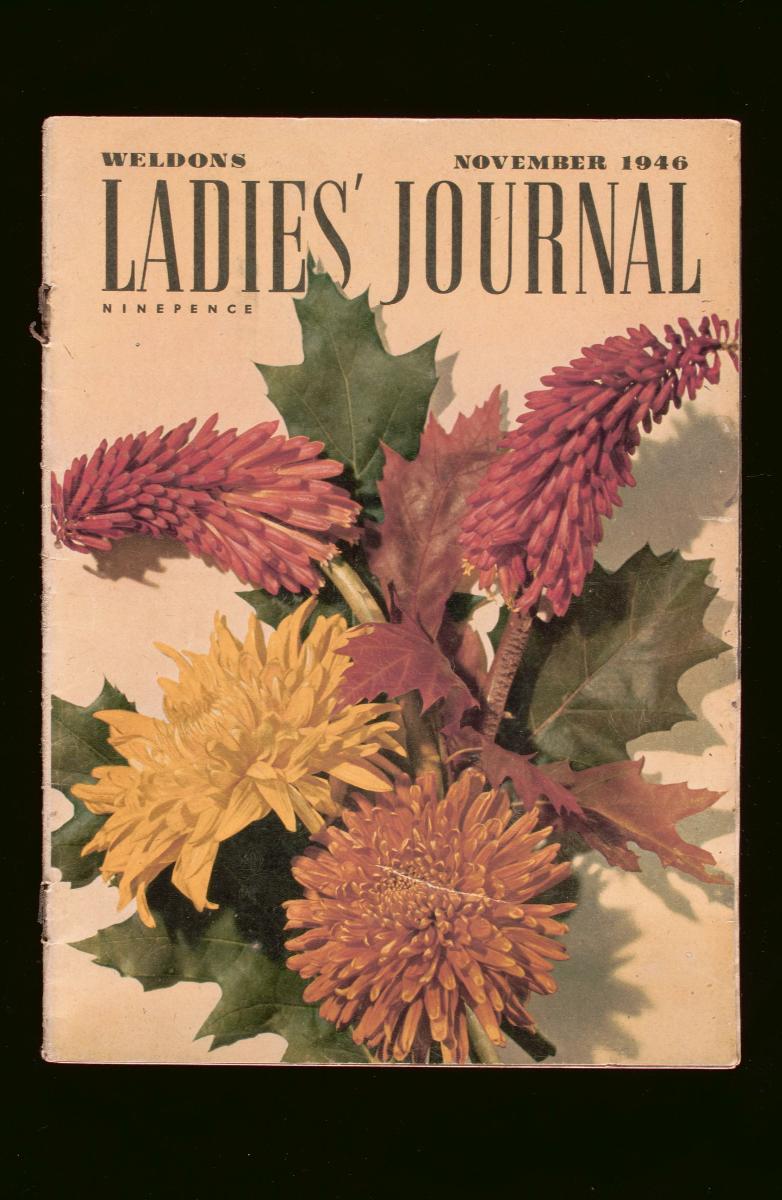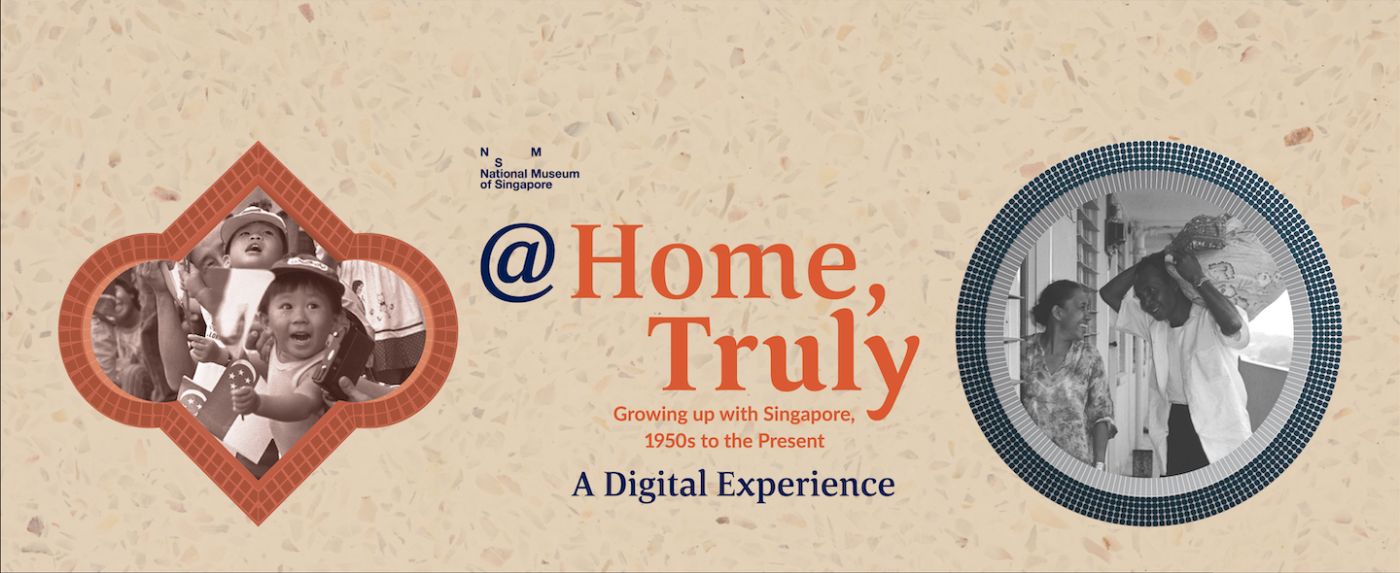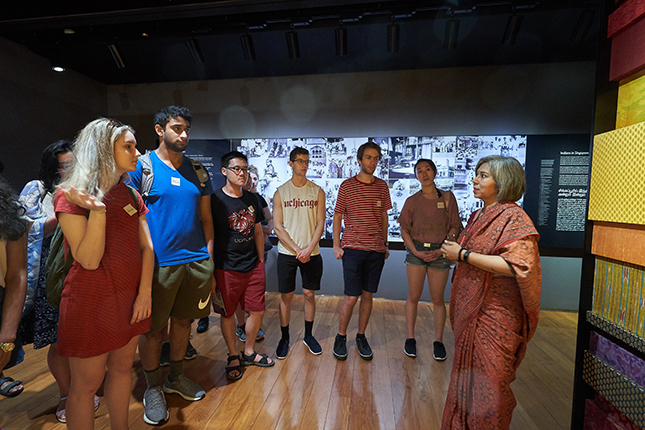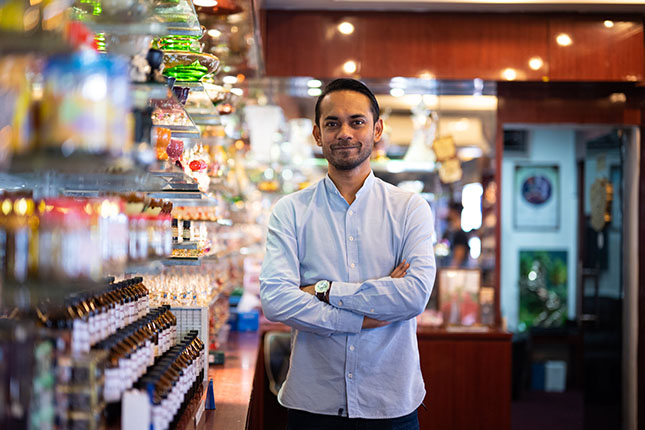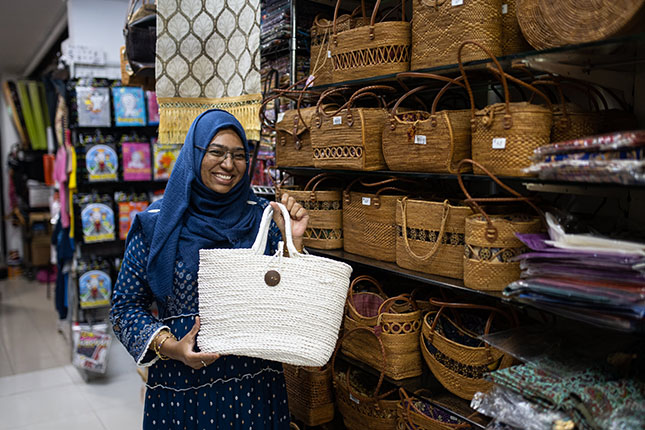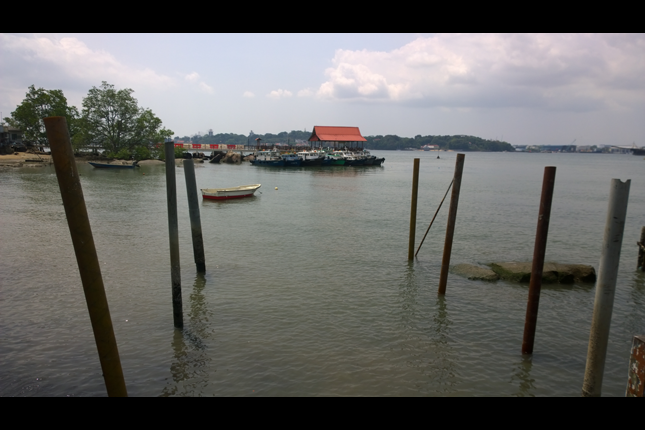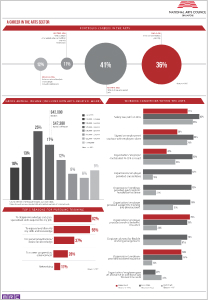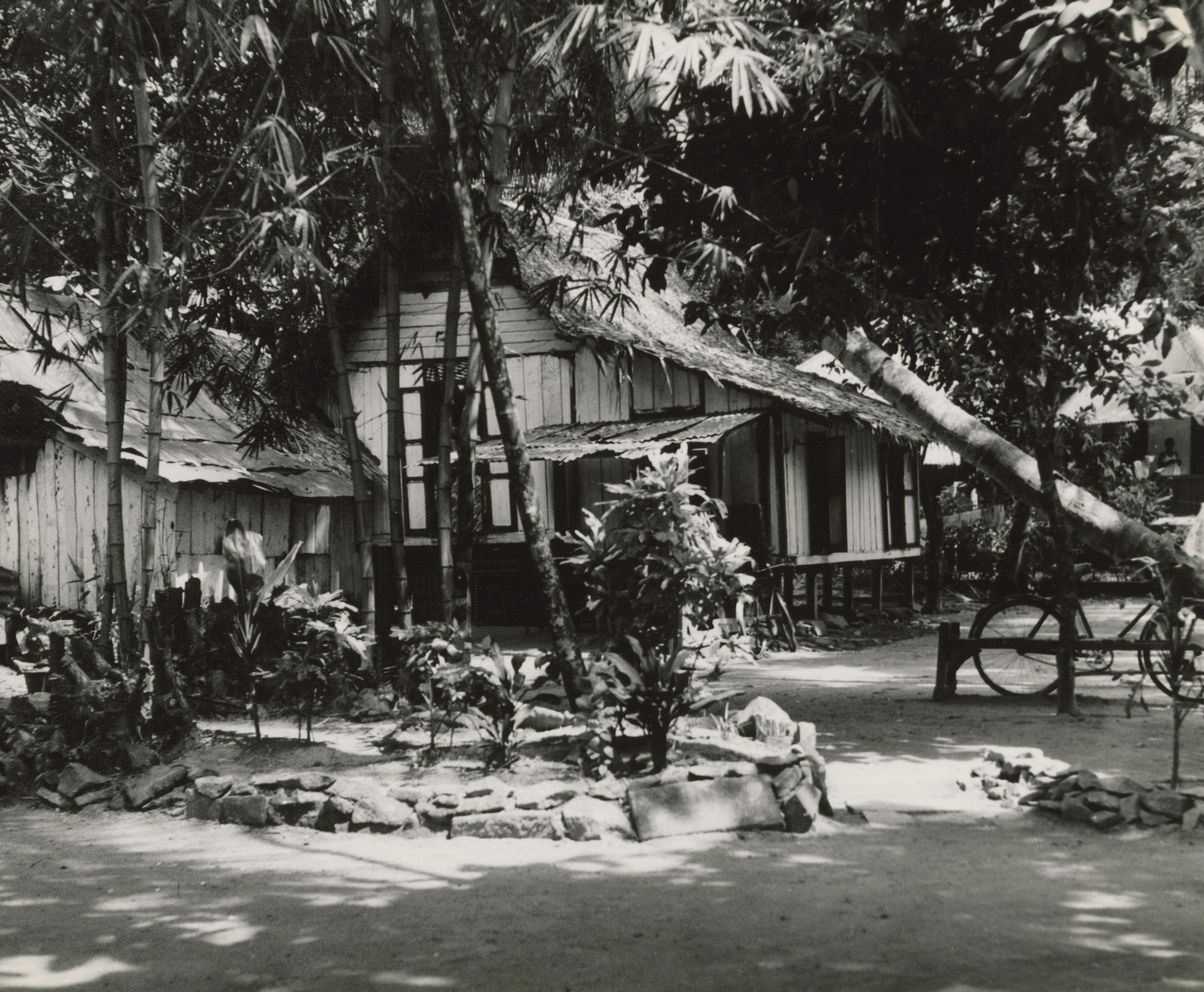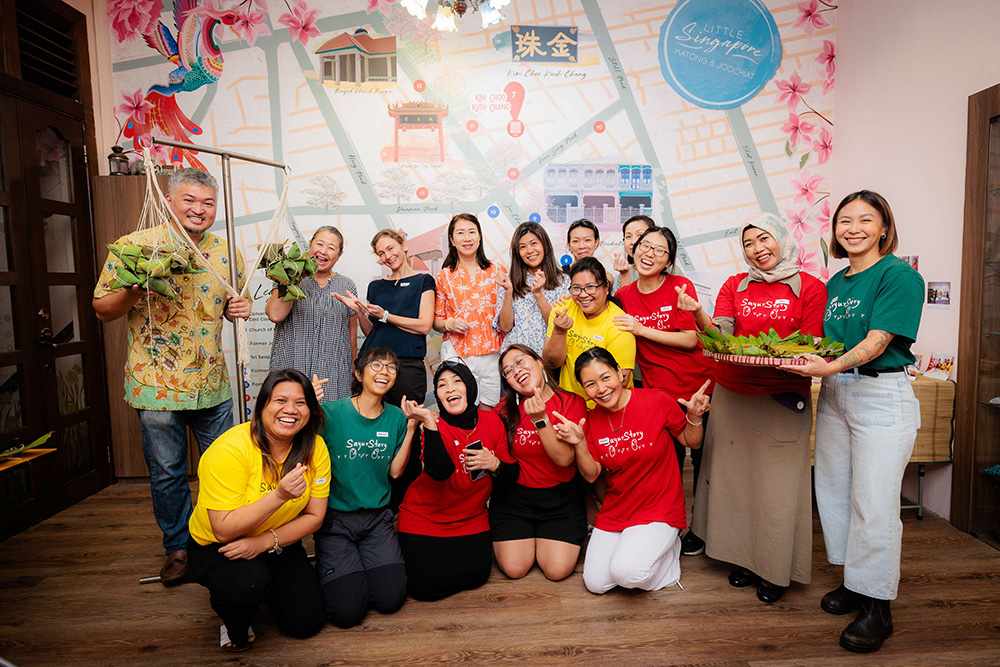Making the Cut for the New Generation
|
Name of business: |
Kebaya by Ratianah |
|
Business location: |
23 Bussorah Street, Singapore 199441 |
|
Business type: |
Textile |
|
Established: |
2006 |
Founded in 2006, Kebaya by Ratianah is a quaint shop located in Bussorah Street. The owner, Ms Ratianah Binte Mohd Tahir, specialises in making traditional wear for the local community. She strives to uphold and inculcate a love for the kebaya and baju kurung in current and future generations.
Ratianah is committed to honouring her heritage and roots. Her retail business, Kebaya by Ratianah, specialises in making traditional Malay garments such as baju kurung and kebaya. These garments are commonly worn by the locals, be it for casual or formal events. Ratianah feels that keeping the tradition alive is her calling. Combining traditional cuts with those that suit modern tastes is what she believes will enable the younger generation to appreciate these pieces. She says, “These pieces are actually very comfortable; with a twist of the colours and cutting, we’ll be able to attract the youngsters.”
The business first opened its doors at Bali Lane and later moved to a small sublet space at Kandahar Street. During this period, both locations were devoid of bustling retail shops compared to Arab Street. With increasing crowds to the area, the business later moved to its present-day location at Bussorah Street. Despite rental challenges, Ratianah chose to establish her business at Kampong Gelam for two primary reasons. Firstly, Kampong Gelam holds cultural significance because it is closely tied to the history of the Malay community in Singapore. Secondly, Arab Street itself is a renowned hub for beautiful textiles and fabrics.
Since moving to Bussorah Street, the shop has made a name for itself for traditional local wear. Customers can select from ready-to-wear pieces or custom wear. Ratianah is known to be able to transform a simple piece of fabric into a nice design, creating a clothing that flatters her customer’s silhouette and meets their preferences. “First, we start with the fabric, I am rather particular with that in terms of quality and comfort. Then, we build up, design, and create beautiful pieces. I would want to create pieces that are timeless and transcend trends.” she says. At the same time, she always includes the traditional details that honour and make the kebaya and kurung unique.
What is most gratifying for her is seeing how her customers return; even more so when they pass on their love for baju to their children in the process. Daughters who came with their mothers, and for whom she made bajus when they were little, have now grown up and become her customers too. “My vision is that I want them to love kebaya starting from [when they are] small… in these 10 years, this 10-year-old girl is going to be 20 years old, so these are your future customers. When you make them love your baju, love your cut, love your branding. They say, Auntie [when] I get married I want you to do my baju.”
Still, managing such a business comes with its obstacles. While she has dressed generations of women and even celebrities, the business is not set up for scale. A silver lining is that it goes against the conventional trends that have flooded the mass market, and instead focuses on its own niche with a personal touch. The Singapore market is challenging as it is a small market in comparison to other countries, and her consumers’ tastes are constantly changing, influenced by global trends. Ratianah says, “You have to follow what is very important. You have to see what is in trend, what people want… you cannot stay stagnant.”
Staying relevant in this digital market, together with rising costs have placed additional pressure to maintain the quality of her products. Ratianah has to provide value-added services, and that intangible aspect is what makes her customers appreciative, returning again and again – even those who live overseas. This special touch has made a difference in their experience. One instance where Ratianah successfully adapted was during the COVID-19 pandemic, when she saw that there was a demand for face masks with designs. She managed to keep the business afloat during this difficult period by making and selling batik face masks. Still, no matter what kind of adaptations she makes, she does not lose sight of her purpose to preserve heritage. She dresses mannequins in her beautifully designed kebayas and bajus, placing them outside her shop. “People can take picture with the mannequin with the grand mosque as the backdrop. It is something people can bring back home,” Ratianah says.
Ratianah says she will stay in Kampong Gelam for as long as she can afford the rental costs. She shares what she loves about Kampong Gelam: “There are times where we can hear people reciting the Quran (ngaji) [from the mosque]. It’s an experience you can only experience here. It’s very calming…”. She also values the community’s kampung spirit. Her neighbours, who sell textiles, are more like partners than competitors, as she sees herself as more of a service provider. They are able to supply her with the diverse variety of fabrics she needs. “I think it’s complementary,” she says. “We have to work together. I am supporting them, and they are also supporting me.”
For young people who are mulling over going into the business, “work hard,” is her advice. “There’s a lot to learn. You start small, you don’t have to be so ambitious to suddenly open a big shop. Like a tree, you plant the seed. It doesn’t grow so big, it starts with the roots, the leaves and goes on, like you see. When the wind blows, our roots are rooted down.” Ratianah lives by her words, putting in consistent effort to run her business. Her resilience and willingness to adapt has allowed her homegrown business to establish its roots in Kampong Gelam. Kebaya by Ratianah has succeeded in becoming part of the district’s rich, vibrant culture, and one can trust Ratianah to sustain her legacy.
Interviewed by Noorul Raaha As’art and Qistina Athirah Binte Mohamed Isa on 24 May 2022.















